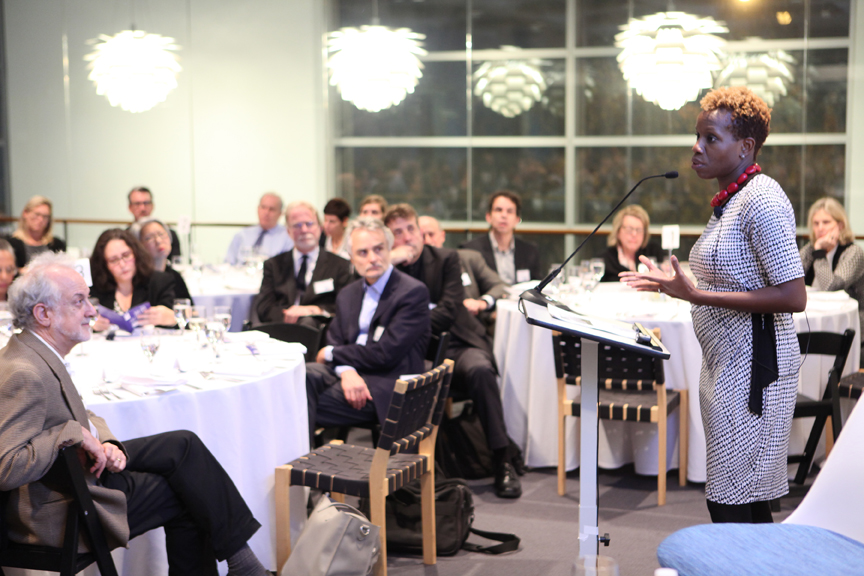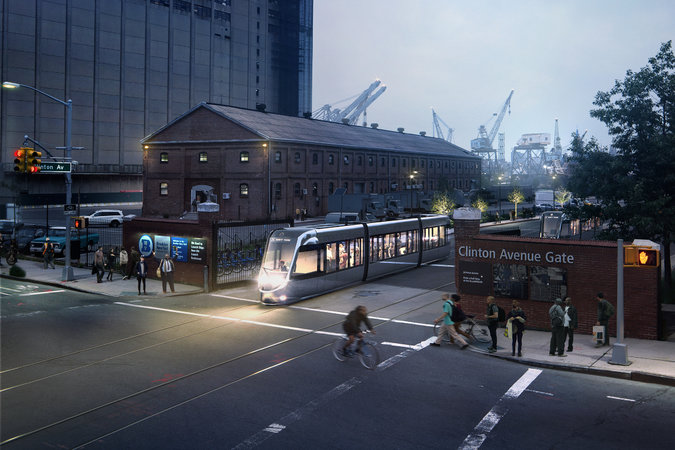 On November 17, the Forum + Institute for Urban Design invited Shola Olatoye, Chair of the New York City Housing Authority, and Jerilyn Perine, Director of the Citizens Housing & Planning Council, to discuss the future of public housing in New York City.
On November 17, the Forum + Institute for Urban Design invited Shola Olatoye, Chair of the New York City Housing Authority, and Jerilyn Perine, Director of the Citizens Housing & Planning Council, to discuss the future of public housing in New York City.
Public housing, owned and managed by the New York City Housing Authority (NYCHA), houses more than 400,000 people in 179,000 units. With 250,000 New Yorkers living in Section 8 housing managed by the housing authority, NYCHA houses 1 in 12 New Yorkers.
Yet the housing authority faces enormous challenges. Nearly half of NYCHA developments are over 50 years old and suffer from disrepair and disinvestment. The federal government continues to underfund the agency, which suffers from a capital shortfall of nearly $18 billion. Moreover, Hurricane Sandy called attention to many riverfront developments’ exposure to storms and the rising tide.
Will our public housing endure for future generations? Shola Olatoye outlined the Next Generation NYCHA plan to build a more “safe, clean and connected” housing authority. Currently being drafted, the plan will address the agency’s massive deficits and empower tenant decision-making.
And how would NYCHA rebuild its aging public housing stock? Olatoye suggested rethinking ground-floor services, activating open spaces, and updating 1970s-era design standards. She also considered integrating new commercial development, like grocery stores and hospitals, to meet the needs of residents and provide a new form of funding for the agency.
Jerilyn Perine, who joined Olatoye in conversation, noted that public housing and Section 8 housing remain among the most effective programs for lifting people out of poverty. And public housing’s successes often go unsung. In recent years for example, campuses have been reconnected to the street grid; building entrances have been redesigned; and new affordable housing, schools and social services have been added to existing housing campuses.
NYCHA’s status as a state agency is a major obstacle, noted Olatoye. The housing authority relies on shrinking federal subsidies, and neither the state nor the city is rising to preserve public housing. In order to raise critically needed philanthropic dollars, the agency would have to create a 501c3 nonprofit organization in a model pioneered by cities like San Francisco, St. Louis and Philadelphia.
Perine considered London’s renowned council housing model as an alternative. London’s public housing was gradually transferred to nonprofit housing associations. Tenants were empowered to vote on and later evaluate the managers of their development. Olatoye noted that NYCHA too was considering how to further empower its residents through programs like participatory budgeting.
Would we ever see NYCHA build new public housing, asked one attendee? Olatoye was optimistic. Public housing might be built, but in a new way: as a number of units in mixed-use, mixed-income developments.
SPEAKERS
Shola Olatoye | ||
Jerilyn Perine |



